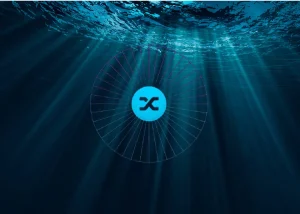The Philippines central bank, Bangko Sentral ng Pilipinas (BSP), revealed today that it has chosen Hyperledger Fabric as the Distributed Ledger Technology (DLT) for its wholesale Central Bank Digital Currency (CBDC) pilot, known as Project Agila. Initially referred to as Project CBDCPh, Project Agila is designed to educate the BSP and collaborating financial institutions about CBDC technology solutions that could potentially enhance the country’s large-value payment system. That marks a significant step in exploring the application of blockchain technology in the Philippines’ financial infrastructure.
Philippines aims to have more CBDC clarity
The BSP’s decision to utilize DLT stems from its capability to record, share, and synchronize data and transactions across a distributed network of various participants. According to the announcement, Hyperledger Fabric was meticulously chosen through a comprehensive selection process. This process encompassed system demonstrations, detailed walkthrough procedures, and an evaluation system that assessed access, security, continuous availability, interoperability, and programmability.
BSP Governor Eli Remolona, Jr. emphasized that by the end of Project Agila, the pilot participants are expected to have a clearer understanding of CBDC technology and assess the capability of wholesale CBDCs to foster advancements in the large-value payment system. The assessment results guide the BSP and the industry on a possible launch of wholesale CBDCs in the Philippines. That indicates the potential for wholesale CBDCs to drive progress in the country’s high-value payment system.
Notably, the financial institutions participating in Project Agila are BDO Unibank, Inc., China Banking Corp., Land Bank of the Philippines, Rizal Commercial Banking Corp., Union Bank of the Philippines, and Maya Philippines, Inc. Meanwhile, Wealth Development Bank Corp., Citibank N.A. Manila, China Bank Savings, and SeaBank Philippines Inc. are the institutions observing future stages.
A recent report from the International Monetary Fund (IMF) underlined the potential for the Philippines to utilize a CBDC for cross-border payments. Although the Philippines initially expressed interest in joining the Singaporean multi-CBDC project called Project Dunbar, it’s believed that the experimental phase of this project has concluded.
On another front, the major Asian cross-border CBDC initiative, the MBridge Project, is progressing. This initiative involves the Bank for International Settlements (BIS) and the central banks of Thailand, Hong Kong, China, and the UAE. Numerous other countries are closely observing this development.
BSP’s commitment to wholesale CBDC implementation
Governor Remolona emphasized that to further enhance the efficiency and safety of the national payment system, they will use learnings from the project as input for crafting BSP’s wholesale CBDC project roadmap. That indicates the BSP’s commitment to leveraging insights from these projects to refine their approach to wholesale CBDC implementation.
In January 2023, the BSP stated that it would not pursue the retail version of its central bank CBDC. Instead, the focus would be on facilitating transactions between financial institutions. The BSP also unveiled plans to transition the country towards a cashless economy in the upcoming years. Their objective is to shift 50% of all transactions to digital platforms in 2023 and to increase the percentage of residents with a bank account to 70%.
The BSP then introduced several initiatives to accomplish these ambitious goals including the launch of InstaPay Debit Pull and Request to Pay, which has received positive feedback from experts. These payment channels will enable customers of financial institutions, including licensed digital exchanges, to transfer funds with minimal transaction fees. The BSP noted a 30% surge in digital payments in 2021, attributed to the pandemic’s restrictions, and expressed confidence in surpassing this figure in 2023.





